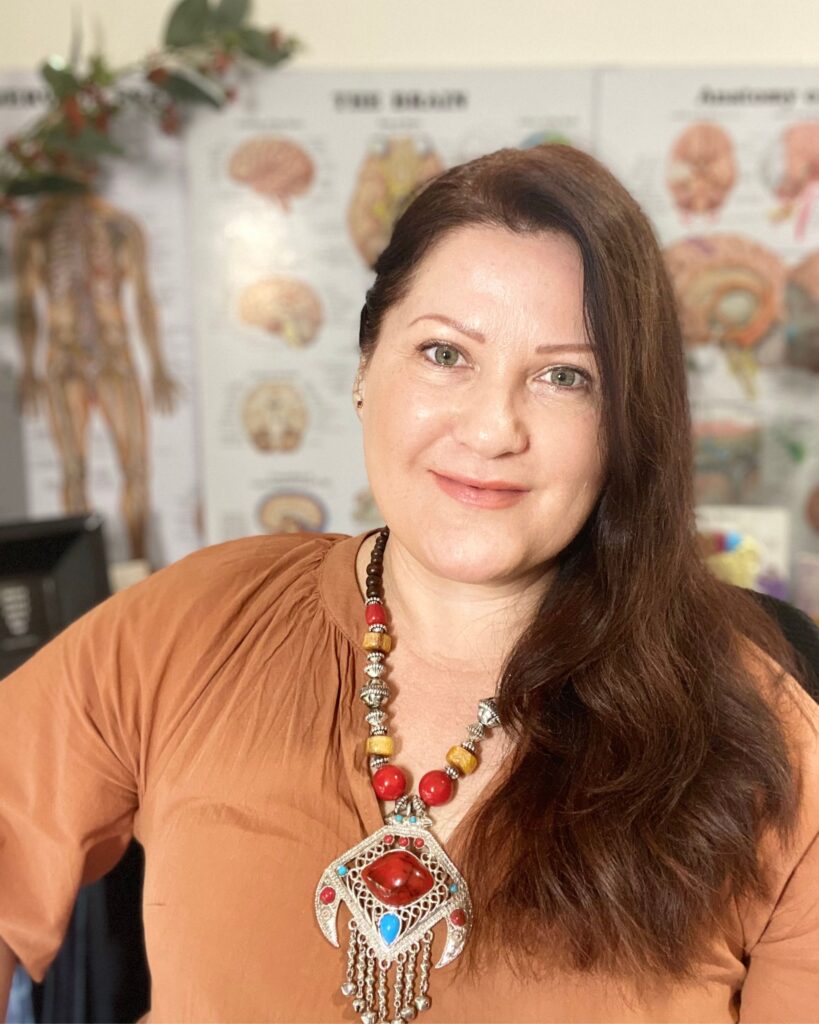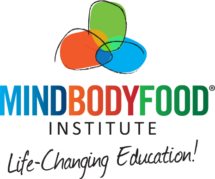In a world that often treats the mind and body separately, a Certified Mind-Body Practitioner can profoundly impact your life. These unique practitioners take a holistic approach, viewing the mind and body as interconnected parts of a whole system.
A Mind-Body Practitioner offers a deep understanding of what contributes to our emotional, physical and mental health via neuro-education, a deep awareness of the powerful mind-body connection and how thoughts contribute to physical stress, impacting the health and function of the nervous & immune systems.
Finding inner balance – homeostasis – is about regulating the nervous system with effective stress relief practices and holistic tools to balance the mind, body, emotions and spirit.
MBFI Certified Mind-Body Practitioners help clients’ work with their own thoughts, feelings and physical experiences by implementing a variety of somatic (bottom-up) practices, and combining these with the (top-down) skills of neuroplasticity, positive psychology and science-backed behaviour change approaches. They also understand how the biology of belief influences our behaviours, habits, and overall health.
With a deep dive into the nervous system, Mind-Body Practitioners can identify how stress and relaxation affect you and use this knowledge to promote healing and inside-out wellbeing. Their foundation in applied neuroscience allows them to tailor strategies that align your mind, brain, and body, cultivating connected and harmonious internal states. By incorporating mind-body relaxation tools and the principles of positive psychology, they can help you flourish – mentally and emotionally, enabling a healthier and more balanced lifestyle and mental outlook.
MBFI Certified Mind-Body Practitioners are trained in a variety of approaches, including the following:
The Bidirectional Mind-Body Connection
Properly trained Mind-Body Practitioners have a deep appreciation and respectful understanding of the powerful connection between the mind and body. They understand that our thoughts, emotions, and beliefs can influence our physical health, and vice versa.
Approaches are designed to address both aspects simultaneously, and aim to promote overall wellbeing through a bottom-up, top-down, outside-in framework.
Holistic Healing Approaches
Mind-Body Practitioners use a variety of holistic healing approaches to help their clients achieve internal homeostasis, a solution-focused mindset, and a resilient and adaptable nervous system.
Approaches may include breathing protocols, meditation and mindfulness practices, progressive muscle relaxation and guided imagery. These techniques are designed to reduce stress, improve mental clarity, and enhance physical health.
Emotional and Psychological Support
A key aspect of the Mind-Body Practitioner’s role is to provide insight and understanding into an individuals’ emotional patterns. They help clients explore and understand their emotions, thoughts, and beliefs, and how early childhood experiences and conditioned beliefs may be impacting their health, mindset and/or behavioural challenges.
Stress Management Techniques
Stress is a major contributor to poor health, both mentally and physically. As fewer people prioritise self-care and restoration, illness, disease and mental health concerns become more prevalent in our society. This is where a trained Mind-Body Practitioner is so unique in understanding the strain that chronic stress and lack of meaning can place on each individual who’s lost connection to their authentic self in favour of external expectations and demands.
Mind-Body Practitioners are trained in understanding the Nervous System, particularly the Autonomic Nervous System responsible for our stress and relaxation responses. They educate their clients on types of stress and how each impacts their systems, and they teach effective stress management techniques to help cope with the demands of daily life to reduce the impact of chronic stress on health.
Lifestyle Recommendations
In addition to specific techniques and practices, qualified Mind-Body Practitioners may also help design lifestyle recommendations to support their individual client meet values and needs fulfilment. This may include suggestions for exercise, sleep, and other lifestyle factors that can impact their health.
Properly trained and Certified Mind-Body Practitioners play a valuable role in promoting holistic health and integrated wellbeing by appreciating the connection between the mind and body, nervous system, vagus nerve, emotions, mindset, habit loops and the brain. A Mind-Body Practitioner can help individuals achieve wholeness of being, increased awareness and agency over their choices and behaviours, reduce chronic stress and improve overall quality of life.
MindBodyFood Institute trained Mind-Body Practitioners, adopt a comprehensive blueprint and focus on the following key approaches when working with clients:
Educating on the Mind-Body Connection: Practitioners help clients understand the intricate link between their thoughts, emotions, and behaviours and their physical health. They explain how stress and negative emotions can weaken the immune system, disrupt sleep, and contribute to chronic health conditions.
Embodying Relaxation Techniques: They encourage clients to practice relaxation techniques such as deep breathing, meditation, and progressive muscle relaxation. These techniques are instrumental in reducing stress and promoting a calm adaptability through a flexible nervous system.
Addressing Underlying Emotional Issues: Practitioners work with clients to identify and address any underlying emotional issues contributing to their physical symptoms. They encourage healthy emotional expression through journaling, somatic practices, and leaning into positive social connections.
Developing a Positive, Solution-Focused Mindset: They help clients develop a positive mindset and focus on the good in their lives. Practitioners encourage the practice of gratitude, engagement in joyful activities, and surrounding oneself with positive influences.
Promoting a Healthy Lifestyle: Practitioners guide clients toward adopting a healthy lifestyle that includes regular exercise, a balanced diet, and sufficient sleep. These habits are essential for boosting physical and mental wellbeing, reducing stress, and improving overall health.
These strategies empower clients to enhance their physical and mental health through the power of the mind-body connection and self-directed healing practices.
Whether you’re struggling with physical health issues, mindset or behaviour change blocks, non-clinical mental health challenges, or are simply seeking to enhance your overall health and wellbeing, a qualified Mind-Body Practitioner can support your journey to better health through a bottom-up, top-down, outside-in framework that respects and includes all parts of what your unique system needs to function optimally!
Learn more about becoming a Certified Mind-Body Practitioner by visiting the course page here: Mind-Body Practitioner Certification Course.

Author:
Viki Thondley
Viki Thondley-Moore is an Integrative Holistic Counsellor, Brain-Based Coach, Clinical Hypnotherapist, Mind-Body Somatic Practitioner, Wellness Coach, Meditation Teacher, Educator and Disordered Eating Specialist. Viki is founder of MindBodyFood and Founder/Director of the MindBodyFood Institute.







